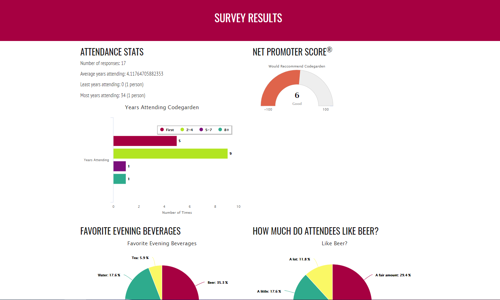Warning: This post is over 15 years old and may no longer be accurate, especially in regards to more updated technology currently available. Additionally, links in this post may be broken. Please keep this in mind while reading.
 Many professionals who provide consulting or coaching have plenty of ideas about what content they can provide their potential clients to keep themselves top-of-mind and their online marketing humming along. Those in the creative professions: authors, artists, photographers, designers, etc. might feel stumped about what they can offer in the way of content. However, there is plenty that creative professionals can do to support their own online marketing efforts.
Many professionals who provide consulting or coaching have plenty of ideas about what content they can provide their potential clients to keep themselves top-of-mind and their online marketing humming along. Those in the creative professions: authors, artists, photographers, designers, etc. might feel stumped about what they can offer in the way of content. However, there is plenty that creative professionals can do to support their own online marketing efforts.
Website Design
When designing your website, as a creative person, it is important that you feel that the site represents your aesthetic vision. Visual branding is particularly important. However, be aware that many of the beautiful portfolio websites of creatives are not designed well for profitability. A pristine homepage, tons of snazzy flash animation, and minimalist content will look good, but won’t necessarily help your bottom line.
Obviously, examples of your work will be a big part of your marketing message, and you need to have ways of keeping that front-and-center, but textual content can also play an important role in sharing your vision and making sales.
Biographical information about yourself is easy to add to your site – and don’t forget to include any accolades you have received for your work. If you have been featured in the media, or as part of any major museum exhibits, toot your horn a bit.
Explaining your process and artistic vision can further build a connection between your visitors and your art. Delve a bit into the meaning of your work, and your sources of inspiration.
E-zine/Blog Content
Just because you aren’t a consultant doesn’t mean you should skip having an e-zine. This is an excellent communications vehicle for keeping your customers, supporters, and potential customers informed about what you are up to. The sorts of content you can include in your e-zine are:
- New portfolio images or book excerpts
- Announcements about what projects you are working on now
- Gallery & museum shows you are participating in
- Workshops you are teaching
- Any publications your work is appearing in
You can also include musings on your artistic philosophy, how-to articles and tips for people who are working in the same media as you are, and whatever other bits of information about your work or even your lifestyle, which would be of interest to those who are following you.
Social Media
If you are a visual artist or photographer, websites such as flikr can be a place for you to publicize your work. There are also other websites geared specifically to artists who want to sell their work online. You can also create galleries in your Facebook and other social networking profiles. If you are posting images, make sure to attach good captions and tags since that is what search engines use to identify the content in images.
Ask for the Sale
Many creative people are uncomfortable talking about their art and money in the same conversation, but if you don’t let people know how they can work with you, own your art, buy your books, etc. you won’t be able to live off your creative work. Don’t be afraid to tell them how they can support your work. Make it clear in all your communications and on your website pages.
If you are available for commissions or other sorts of custom work, make sure you describe that. Explain the process of working with you, so your prospects feels informed and comfortable. Remember that many of your best customers won’t know about how things are done in your industry, so anything you can do to educate them will put them at ease and make it more appealing to work with you.
Web Action Steps
- If you have a website, look over it carefully to determine if it is designed to support your business – not just your art.
- If you are beginning to plan a website, leave room in the design for plenty of content that will help your marketing efforts.
- Create a blog, if you don’t have one.
- Make sure you have an e-zine with a prominent sign-up form on your website.
- Post your work where people are likely to see it, with links back to your main website to collect leads and sales.
- Don’t forget to include a Call-to-Action on every page of your website, as well as in the marketing you send out.
Creative professionals can use the internet to market their businesses just like everyone else, using a clear strategy and by leveraging their unique content assets. If you are a creative professional who is ready to leave the “starving artist” arena, contact me for a complimentary strategy session today.








